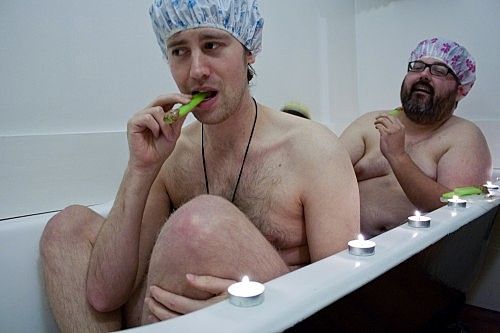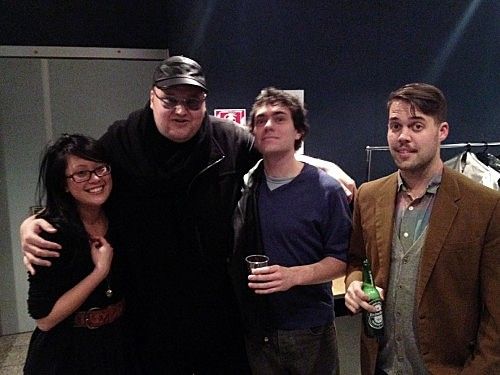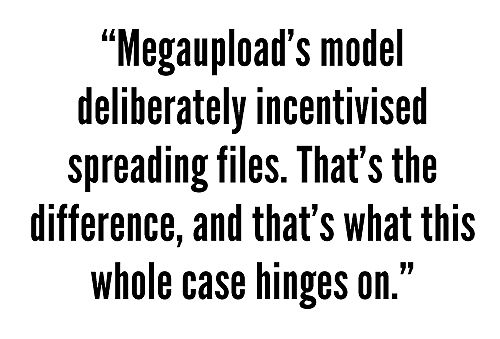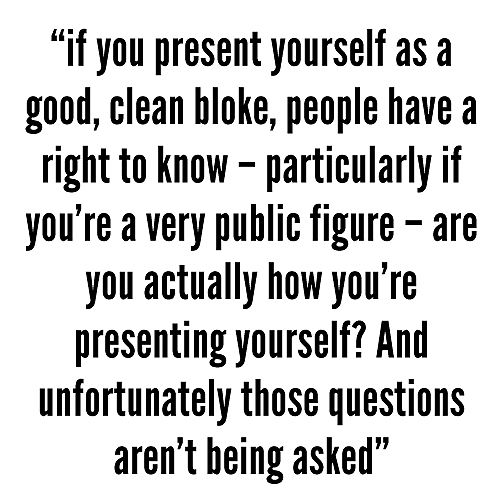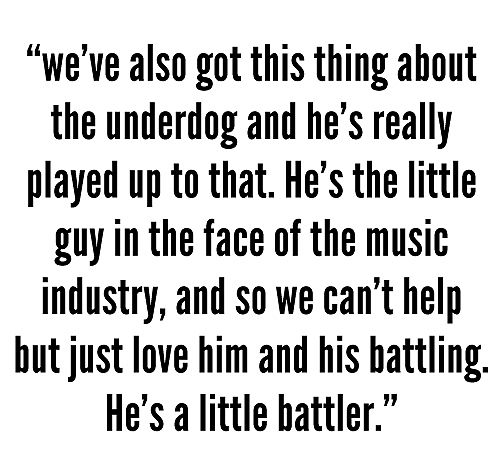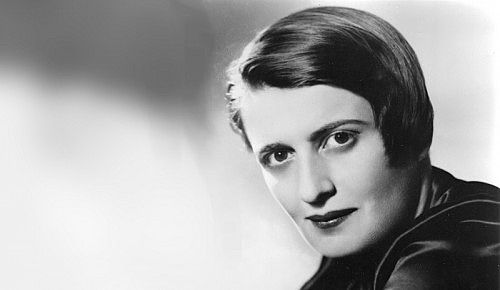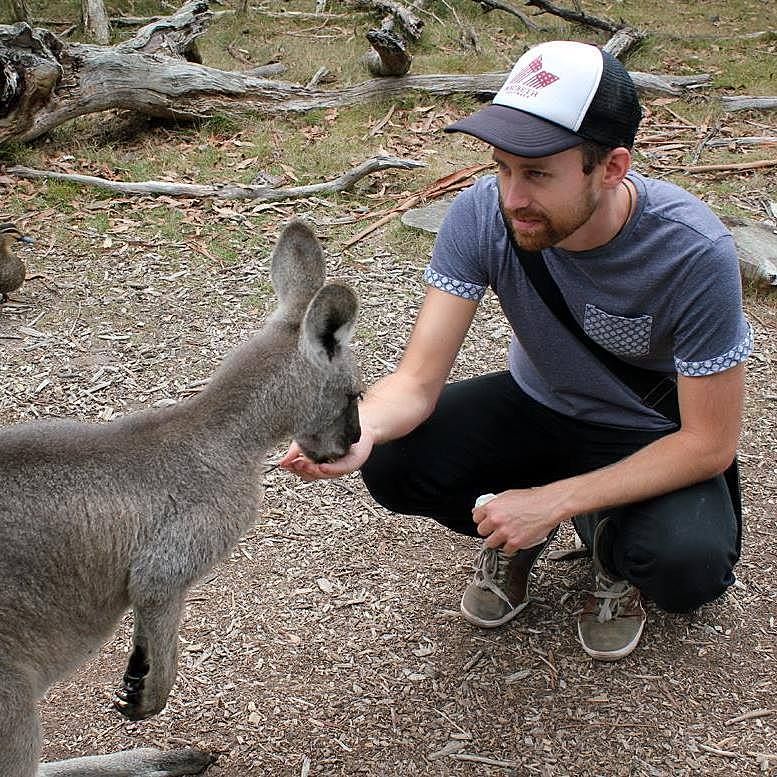Dot Dot Dotcom: Jose Barbosa and Matt Harnett in Conversation
Today, we wrap up our love affair with Kim Dotcom with a discussion of his case, how it's been covered in the media and why Dotcom is quite possibly the love child of Ayn Rand.
We've seen our love affair with Kim Dotcom blossom this year, from Matt's thoughtful double-hander on the political and legal implications of his case to all of us travelling down the long and sometimes-delicious road to the Chrisco mansion, bearing gifts of Countdown ham, cheap champagne and blank CDs. Unfortunately we never made it through those iron gates, watching instead as the security guard drove away in his little golf buggy, our ham in his lap. This week, José wrote about his night with the man, and today we wrap up our series with a swim of our own and a discussion of Kim's case, how it's been covered in the media and why Dotcom is quite possibly the love child of Ayn Rand.
Matt
I want to talk about Dotcom’s recent video, Mr President.
José
I know it well. It’s beautiful.
Matt
It’s a thing of beauty. But the rhetoric in it – if you didn’t know anything about the case, it would tell you nothing, apart from the fact that Dotcom doesn’t like Hollywood. It’s basic propaganda. That’s what both sides are now waging. We're seeing a propaganda war, and consumers who want to download free stuff will automatically side with Dotcom regardless of the pros and cons of the arguments on either side.
José
That’s a good point – that it’s happening on both sides. All the Department of Justice ever said is that Megupload comprised 4% of internet traffic. They’ve left it up for you to go, “Well, if it’s four percent of traffic, it must be huge the amount of illegal stuff going on.” So that’s an example of, as you say, the propaganda war. And then on the other side you’ve got a pretty obvious and fairly well-run campaign by Dotcom – essentially starting with the Campbell Live interview and kicking into high gear –
Matt
Even before that the media were reporting quite positive spins on the story. It was ‘Millionaire German Gets Raided by Police’ at first, then there were questions raised about the legality of the search and seize order, and slowly it kind of unravelled until you got to where we are today, which is Kim Dotcom releasing YouTube videos yelling at John Banks.
(pause)
It’s the whole thing. He’s got a beautiful wife, who was pregnant at the time of the raid. Just everything about the case - he's presenting a narrative that screams he’s an innocent man who's been unduly targeted. And in the interviews he gives, the interviewers very rarely - for example that first Campbell one - delve too deeply into his criminal past. And if so, they just nod to it before inevitably mentioning the clean slate laws in Germany and that he came to New Zealand a new man. In your piece you went and visited him in his mansion. What was the impression you got? You said the house was full of family and kids.
José
Well that was the second time we went - because we got invited to dinner about a month later. I think he emailed Ben and said, "Oh come over and have dinner, bring partners, bring a plate." Which I thought was nice.
Matt
Very Kiwi.
José
Yeah very Kiwi, there you go. And, you know, come over and talk about all the crazy carry-on. And when I got there it was a total family affair. The other co-accused and their partners, friends of them, their kids. So there were a lot of kids just running around the place, and he’s the sort of patriarch in the middle.
Matt
Kind of like the Godfather.
José
Yeah! Like the Godfather. That’s totally right. The impressions were – well, like I say in the piece, we were terrified he was going to pull out some prostitutes and cocaine, ‘cause that would have been so awkward. But when we got there it was really as banal as it seems. Banal and just bizarre and strange. And they were good hosts! What can I say.
Matt
Did you get a sense of him being slick at all? Did you get the impression he was media trained or savvy at least?
José
What they say - or he says - was that the whole Swim at Kim was totally spur of the moment. A couple of days earlier he had signed up on Twitter, I think because the video was coming out and he wanted to do stuff around that, and when we were there the first time, he came over and asked, “How do you think I should use Twitter? Do you think I’m tweeting too much?” And I went sort of like, “Ah, I don’t know... I spose. Dunno. Just put more photos of you on segways and shit. And shotguns.”
(pause)
My feeling is that he doesn’t have a PR team, it’s just him and the other co-accused, but mostly him. If he gets advice it’s probably from Ira Rothken, his leading defence attorney in the states, who seems quite slick, and who probably is giving him a bit of advice. But having said that, that doesn’t mean that it isn’t a PR push, and you could argue that we were willing participants in that. And certainly - it’s interesting for me, because when Ben invited me, I first said “No, I’m too busy, I can’t go.” And I thought about it and I thought, “Shit. I should go,” because this was heading into the last Media 7 episode, and we’d been talking about getting him on the show.
Matt
So you pitched him while you were there?
José
Yeah, because as I say, they talked about Media 7 once they found out who I was. So I said, “Oh great, you like the show, would you like to come and be on it?” He was a bit vague about that, so I said, “At the very least, come and see the last episode,” and lo and behold, he did.
Matt
Oh yeah, the photo.
José
That was beautiful.
Matt
So upsetting.
[Matt didn’t make the last episode of Media 7, and is therefore not in the below photo]
José
And that kicked off the whole thing, because then he went to the Save TVNZ7 march.
Matt
Is he really savvy? Is he just bored at home, with his many many children running about, or what? He’s deliberately doing these things which put him into the forefront of TV cameras.
José
It works in his favour. When we went back the second time I asked him again: “Look, we’ve got the new show, come on and be in the first episode.” And afterwards he said, Look I don’t think I will. Well first of all he said, I don’t want to talk about the case - he said his lawyers were being assholes about it, you know, just shut up and don’t talk about it because you're doing more harm than good, so I said well we can just talk about social media and how you're using that, and he got back to me and said, It's unlikely that I'll join the show in August, the media is quite oversaturated with my story at the moment and I’d like things to calm down and maybe do something at the end of this year.
Matt
That’s good timing. The extradition hearing’s not long after.
José
Exactly.
Matt
And then after that, no matter who wins, it’s going to be appealed, regardless, so –
José
– yeah, and If you look at other cases like this, like Google Viacom - that’s still going –
Matt
– and that’s five years. Obviously they're a big case, but the principles Dotcom’s defence are using are basically the same, which is that they're a safe harbour and they can’t control what their users do.
José
And I mean, the Digital Millennium Copyright Act (DMCA) was set up in the ashes of the Sony case, originally, when they couldn’t be responsible for what people recorded on their video recorders at home. There’s a really good article in Fortune that goes through the history of the legislation in the States after this point and it makes the crucial point that stuff hasn’t actually evolved since the DMCA came into being, and it desperately needs to.
Matt
That’s right. And it makes the very good point that in the 70s and 80s, lawyers got into copyright in order to protect artists and authors and moviemakers. Since the 90s, they’ve got into it to make money because they know it’s a huge emerging field, and although they're the bad guys and the people they represent in popular consciousness are the bad guys now, it’s incredibly lucrative.
José
And it's interesting, because it’s not enough to have general knowledge – again it’s the YouTube thing, so when somebody talks about this case, they go, "Oh well, Megaupload’s just like YouTube," and to a certain extent they are. Obviously everyone who uses YouTube knows that there’s stuff up there that’s copyrighted and you know, you're watching your Simpsons episodes, they know that it’s up there and it’s copyrighted. The people who run it know that as well. You can’t prosecute somebody just because they have general knowledge. What they're arguing is that Dotcom and the employees at Megaupload had a lot more in that, in fact they were active participants. There was a whole system of incentives, financial and otherwise, for more popular content.
Matt
It’s their business model. And something Google Drive or the Microsoft or Yahoo equivalent don't do is that they don’t incentivise sharing. It’s purely for personal use, or at the most, two or three users, whereas they're saying that Megaupload’s model deliberately incentivised spreading files. That’s the difference, and that’s what this whole case hinges on.
José
So the States have to prove that they were doing it, and that it was conducive to copyright infringement and that they were encouraging it. They also have to prove that – because what they claim is that Megaupload weren’t taking down the content itself, they were just taking down the links, which is interesting, and is one of those things that might come back and bite Kim Dotcom in the ass. You notice it in the Campbell Live interview and Campbell’s sort of walking him slowly through what exactly Megaupload is, and Kim Dotcom says, “If copyright holders asked us to take stuff down, we’d go and take down the links.” I think he says it again, and it’s only until Campbell goes, “So you took down the content?” that he goes, “Yes.”
Matt
That’s one of the interesting things. The DMCA was enacted fourteen years ago now, and back in the day, I don’t think they provisioned for taking down links or actual files, because back then the biggest file they would’ve had would have been 50MB or whatever, so it wouldn’t have been a bandwidth issue to do either thing. Nowadays, you’ve got a blu-ray DVD that’s 4GB, which is far more bandwidth intensive, so of course the person that puts it up doesn’t want to have to get rid of all that information. Megaupload’s business model has successfully operated in that grey area, and intentionally so.
José
And it’s surprising that there are still those grey areas, which is not what Dotcom would argue at all. He’d say they're just a cloud storage space.
Matt
Well his team are deliberately simplifying every single step of what his process is.
José
Exactly. Anyway, he’d just been on RT the day before as well. But that’s fine, if he doesn’t want to come on, he doesn’t want to come on and that’s fine. It’s a really banal thing to say because everyone’s been saying it, but he’s playing it very cleverly, so you’ve got this narrative of “Oh he’s just a good dude, had some dudes over for a swim, he’s got ATVs in his backyard, that’s pretty cool.”
(pause)
But the thing is, it’s sort of half-true because he was wronged. The search warrants were completely bungled by the police.
Matt
Yeah, yeah –
José
– which is fascinating, because they should have crossed their t’s and dotted their lowercase j’s –
Matt
You would have thought. But you get the impression they just wanted to show off to the FBI agents, show they could so something like that.
José
Yeah I like thinking about the FBI agents arriving and going, “So, like, we thought if you could just go in and have a look, but, like, is there some documentation we need to fill out?” And they’re like, “Nah man, we’ll do it now! Let’s go! I’ve got guys that have been doing laps for the past three years, let’s fucking do it!” and they’re like, “Well how about things like due process,” and the New Zealand guys are like, “Nah, let’s just go in! Let’s fucking nail this guy! Let’s do it!”
(pause)
So there’s a genuine preface there, and as you point out, eventually there will be some compensation. It will cost the country.
Matt
One way or another, definitely.
José
Yeah, and the case about whether Megaupload fostered copyright infringement – whether they’re pirates – that’s still to be made. Kim’s putting this narrative out there that he’s a genuinely wronged family man, and he may be all of those things, but he’s gotta be prepared for when questions about his past are asked, because that hasn’t happened yet. You know, a guy who gets to that position and who has that amount of money very rarely gets there by staying on the straight and narrow.
Matt
And the problem is that this isn’t exactly being two-faced. He’s played the media very well, it’s just that his circumstances have changed. And the fact he can play the media so well makes me feel a bit cynical. It makes me wonder if the public isn’t just being caught two opposing viewpoints - I mean, neither of them particularly representing the actual facts. It’s concerning. How do we, as citizens, as people who vote and hopefully have some say in what the laws of our country are going to be - how do we make the best choices if we're being misled by both sides?
José
The question is – and it’s a completely different issue from the case itself, or the legality of the arrest and the search warrants and all that – if you present yourself as a good, clean bloke, people have a right to know – particularly if you're a very public figure – are you actually how you're presenting yourself? And unfortunately those questions aren’t being asked, partly because he really hasn’t done a major interview since that Campbell Live interview. And it’s his prerogative, I mean he can do whatever he likes, but he’s only appearing in the media where he can control the message, and right now that’s Twitter.
Matt
There’s a point – why would he bother giving more interviews when he’s already portrayed in a glowing light?
José
Exactly. The job’s done.
Matt
There’s nothing left to be gained. And I’m interested in this not just as a Kim Dotcom thing, although he’s the figure that’s risen to the plate on our own doorstep, but what it means generally, especially with the Trans-Pacific Partnership deal currently being negotiated behind closed doors. Part of the controversy surrounds the intellectual property agreements, which are draconian to say the least. They basically bring New Zealand into line and even beyond the DMCA in America, and several other countries as well, and in the end it might not even be consumers who get to decide what laws our country is run by – Kim Dotcom’s just the figurehead.
José
The argument is that Hollywood’s out to get him.
Matt
That’s such a basic argument though.
José
Yeah, but why not? If all the Hollywood fat cats went and talked to Joe Biden - so what? That’s what I’d expect them to do. The issue, when it comes back, is that Simon Power talked to the managing director of MPAA Asia Pacific before he declined Dotcom’s application to purchase his mansion. And before that he talked to this guy from the MPAA.
Matt
Simon Power did?
José
Yeah. And maybe that’s drawing a long bow, but those are genuine questions. Can that be dictated to? Does the MPAA have direct access to the ministers? Those are serious damn questions and people can poo-poo it and go, you're just being conspiracy theorists and you're falling in line with Kim Dotcom and what he’s saying, but you’ve got to ask those questions because it seems pretty crazy. Especially with, as you say, the TPPA negotiations going on as well.
Matt
This is going to affect how New Zealanders access the internet. Like it or not, Kim Dotcom is part of that narrative.
José
And the thing that everyone’s been saying is, “Wow he’s become a folk hero.”
Matt
Yeah.
José
So you get a range of people just absolutely loving him. Going and buying Mr President on iTunes and seeing him as a wronged hero of internet freedom.
Matt
I feel like part of his strategy is to play up to the New Zealand psyche specifically. I mean we’ve got a tall poppy syndrome so you’d think as a millionaire he’d be kind of disadvantaged by that – but no, we’ve also got this thing about the underdog and he’s really played up to that. He’s the little guy in the face of the music industry, and so we can’t help but just love him and his battling. He’s a little battler.
José
It works into that whole “They just came into my home, and waved guns around! I wasn’t doing anything!”
Matt
“My home is my castle! Quite literally a castle, in this case, and you’ve just invaded it!”
José
I wonder if people are making slightly too much about him being a folk hero. Because he obviously has his followers on Twitter – although we’ve just worked out using statuspeople.com, apparently 11% of his followers are fake. So he has, what, 100,000 – what’s that?
Rosabel
Eleven hundred.
Matt
Eleven thousand.
Rosabel
Eleven thousand. Fuck.
Matt
We’ll just excise that bit from the record.
Rosabel
The only thing I say. An incorrect number.
[hysterical laughter]
José
I’m wondering as well if the extent to which people think he’s been portrayed as a folk hero is kind of overstated. Reading that Fran O’Sullivan article –
Matt
Does she know how to use the internet?
José
No I think she just sends it in via pigeon and Gary the comment boy copies it out. This is from Saturday June 30th: “Dotcom farce calls for new police enquiry” and she’s basically pointing out that yeah, the cops screwed up and we should be worried about if the cops can go in for Dotcom and shit all over due process, who else could that happen to? But she’s talking about Dotcom and saying “Megaupload’s catchy marketing ditty… M-E-G-A, send me a file today trips off the tongue of the many kiwis who have been captivated by the skilful manner in which the German entrepreneur played with MP John Banks’ reputation, held Twitter parties with select media and basically stuck it up the authorities.” Um, I don’t know anyone who has M-E-G-A send me a file today trip off their tongue.
Matt
Well it doesn’t, because there are too many harsh consonants.
José
So I question the extent to which he’s become a folk hero.
Matt
Well that’s the thing – he can only be a hero amongst people who download shit all the time. Which is everyone under 30. So how much do “middle New Zealand” give a fuck about this story?
José
When my parents cut out the thing in the paper – page two of the Herald – they were like, “Oh! Look! You’re in the paper! He seemed nice.” It was like yeah, all right, they didn’t really give a toss. I think Twitter’s still not – I mean for me, it’s a daily thing, it’s constant in my life, but most people don’t use it. We forget that. I suspect no one really would have known about Swim at Kims if they hadn’t put it on page two of the Herald.
Matt
Well one thing that was interesting recently, the Herald published something about whether Mark Sainsbury was going to get the chop at Close Up @ 7 or not, and one of the reasons they thought he might be was that Close Up really dropped the ball on the Kim Dotcom coverage. And I’m thinking, Did they drop the ball? Or did they just realise that no one above the age of 35 would know or care enough about this weird German man to follow to the story?
José
I’m not saying it shouldn’t have been news, I just don’t think – there are things to have in the first couple of pages in your newspaper, and literally a story about some guy swimming? That’s sort of celebrity news. If you want to do something about the case, yeah, page two totally.
Matt
Yeah.
José
The other point to make is there’s a real danger for the press to start taking basically what’s said on Twitter as an indicator of the public’s feeling at large, because it’s clearly not. That’s a real danger and it’s starting to happen a lot.
Matt
I completely agree. The Herald website has a Twitter feed for live-streaming events like the Olympics, and they’ve got this kind of mood-of-the-nation type thing. Then the people who write for the Herald will look at those tweets and say, “Aha! That’s what people think,” and they’ll write stories about that. But it’s not what people think, it’s what people who tweet think.
José
Exactly. Eventually I’m sure it will be everyone doing the *makes herp-derp tweeting sound* the whole time.
Matt
We can hope.
José
At the moment it’s just starting to get going. But yeah, that happened and it was fine, and we drank beer and it was good.
Matt
German beer?
José
They only had Heineken.
Matt
Disappointing.
José
Very disappointing. I will say one thing: he does great novelty photographs, which I’m a big fan of. But if the guy’s putting himself out there as a genuine kiwi man – actually, this is my favourite article about Kim Dotcom being a genuine kiwi bloke.
[José pulls out his laptop]
Matt
Rosabel, have you seen the new Batman movie?
Rosabel
Not yet.
Matt
The main guy, Bane, really reminds me of Kim Dotcom.
José
Hahaha!
Rosabel
It struck me that he’s also a lot like Willy Wonka. This mysterious millionaire creating a product everyone adores.
Matt
And José won a golden ticket.
Rosabel
Exactly! He got to tour the factory and the media lapped that up because they want to know what’s happening inside this amazing world.
Matt
The dreamotorium.
José
Okay, this is my favourite article about Kim Dotcom in the New Zealand press. It’s from New Zealand Gamer. Top Ten Reasons Kim Dotcom is a Good Kiwi Bloke. "Let’s put all of the legal issues aside for a moment. Considering the evidence below, we reckon Kim Dotcom is Kiwi as!"
Matt
Christ.
José
"Number one! His name! Like many New Zealand immigrants, he changed his name. And he chose a name that reflected New Zealand's desire to be a world leader in the knowledge economy. Choice! Number Two! He smiles! Ah, this one, Number Three: He always wears black. Number four: The cars. Five: The hat. Six: His music. Seven: Partying hard. Fifty thousand dollars worth of fireworks. Nine: his shape, and Ten: He's sticking it to the man. He’s not afraid to thumb his nose at the man! In the proudest tradition of nuclear-free NZ, he’s not afraid to stay staunch in the angry glare of superpowers.” There you go, tying it into the whole classic anti-authoritarian streak in NZ culture.
Matt
Question: Would Ayn Rand write a positive novel about Kim Dotcom? Is he a captain of industry who we can aspire towards?
José
Fuck, that’s a good point.
Matt
The man is trying to get him down. And the best thing – what I like the best – is that it happened here of all places. Of all places you can get the internet, it happens here! We get peasant speeds; we’re at the back end of nowhere. Why is he here!?
José
Apparently – this came out the last time we went – it’s because he thinks the world’s going down the toilet. Society will collapse or something like that.
Matt
Right. Well that is actually the plot of one of Ayn Rand’s novels, right?
José
Holy shit! He’s so Randian, it’s incredible. I’ve never thought about this before.
Matt
He is Atlas Shrugged. He is Atlas. Do you think he is Ayn Rand’s lovechild?
José
He might be. He very well might be. Who is the guy? What does he do? Should we be up in arms supporting him, and going yeah! Totally! Internet freedom! Like you were saying, he seems like Bane from The Dark Knight Rises, his argument is fairly superficial. His open letter to Hollywood I thought was interesting. “The very powerful and the very stupid have one thing in common: instead of changing their views to fit the facts, they try to change the facts to fit their views.”
Matt
You know, that one line stood out in his entire letter, because I felt that was definitely written by someone else. You read the rest of the letter, for example the paragraph before that – it’s hokey, it’s a piece of shit. That line, though – that is clever. Is he quoting someone?
[Eds note: Later research reveals the exact text was originally from a Dr. Who episode aired in 1977.]
José
I don’t know. “We have the invisible hand on our side –”
Matt
FUCKING RAND!
José
Here’s a question: Do you think I risked my impartiality? By going and tweeting and basically having a laugh in the pool?
Matt
Yeah, I’d say so.
José
Again it’s like, what’s the truth here? Are they being genuine, are they buttering me up because I’m in the media? I really don’t know where they’re coming from. Because they’ll say everything was spur of the moment, it’s all just who we are, nothing is fabricated, we’re not trying to present anything in a certain way, but of course they are. But to what extent?
Rosabel
José – question: did you retrieve your undies?
José
No! And the second time I went I left two plates.
Matt
This is how Kim Dotcom accrued his fortune.

